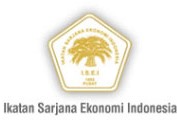Supervising Model of Independent Enterprise Group (Study of Community Development PT Badak NGL )
(1) PT Badak NGL,
(2) PT Badak NGL,
Abstract
This research aims to arrange an empowerment model of enterprise group through the program of Community Development in order to be independent and ready to compete, which is begun from the empirical study of the success of Cipta Busana Cooperative.. This research uses the descriptive analysis by using a case study on one enterprise supervised by PT Badak NGL that is Koperasi Cipta Busana (Kocibu). Kocibu is chosen to be the object of research due to its success to achieve the target to be the independent supervised enterprise in the fourth year. The data analysis method used in this research is the explorative analysis. Based on the research, there are some results such as that Kocibu is one of the supervised Micro, Small and Medium Enterprises of PT Badak NGL that could develop and be independent through several supporting programs. Some of key successes of Kocibu are as follows: a high commitment, a good leader, and intensive supervising programs. Besides, a good marketing system also contributes to the key of success. There are some aspects that naturally contribute to the Kocibu improvement and emerge naturally as follows: the leader figure and the high commitment from the stakeholders. While, the aspects emerged by design are: the supervising and training programs, the evaluation, the determination of rules, and the business targets. Hopefully, after this research has been conducted, the aspects appeared naturaly would be realized so early that the success of the public empowerment program will be able to increase.
Keywords
Full Text:
PDFReferences
Akter, Tania. 2015. How Women Empowerment as a CSR (Corporate Social Responsibility) Topic can be taken as Competitive Advantage to Stay Competitive in the RMG Industry?. IOSR Journal of Business and Management. Volume 17, Issue 10 .Ver. I (Oct. 2015), PP 76-81
Amba-Rao, S.C. 1993. Multinational Corparate Social Responsibility, Ethics, Interactions, and Third World Government: An Agenda for the 1990s. Journal of Business Ethics, 12(7): 553-572.
Anderson, Jr., J.W. 1989. Corporate Social Respon-sibility: Guidlines for Top Management. New York: Quorum Books.
Arikunto, S. 2006. Prosedur Penelitian, Suatu Pende-katan Praktek. Jakarta: Rineka Cipta.
Aupplerle, K.E. 1990. An Empirical Measure of Corporate Social Orientation Studies in Theory and Measurement. Dalam L.E Preston (Ed.), Corporation and Society Research: Studies in Theory and Measurement. Greenwich, CT: JAI Press. Pp. 237-264.
Badak NGL. 2016. Term of Reference Program Community Development : KOCIBU (Koperasi Cipta Busana) FASHION.
Badan Pusat Statistik. 2014. Kalimantan Timur Dalam Angka. BPS Provinsi Kalimantan Timur
Baron, D.P. 1996. Business and its Environment. Upper Saddle River, NJ: Pearson Prenctice Hall.
Budimanta, A., Prasetijo, A. & Rudito, B. 2008. Corporate Social Responsibility, Alternatif Bagi Pembangunan Indonesia. Jakarta: Indonesian Centre for Sustainability Development (ICSD).
Drucker, P.F. 1984. The New Meaning of Corporate Social Responsibility. California Management Review, 26(2): 53-63.
Harsono, Priyo. 2012. Analisis Bantuan Kredit Terhadap Perkembangan Kelompok Usaha Bersama. JEJAK: Jurnal Ekonomi Dan Kebijakan, 5(2).
Khamah, Ali H. 2015. Investigating Effect of Corporate Social Responsibility on Consumer Buying Behavior: A Survey of Listed Companies in Kenya. International Journal of Economics, Commerce and Management. Vol. 3, Issue 1, Jan 2015
Luo, X, et al. 2015. Corporate Social Performance, Analyst Stock Recommendations, and Firm Future Returns. Strategic Management Journal, 36(1), 123-136.
Mapisangka, Andi. 2009. Implementasi CSR terhadap Kesejahteraan Hidup Masyarakat. JESP Vol. 1, No. 1, 2009
Marfo, E.O et al. 2015. Corporate Social Responsibility: Driving Dynamics on Firm’s Profitability in Ghana. International Journal of Academic Research in Accounting, Finance and Manage-ment Sciences. Vol. 5, No.3, July 2015, pp. 116–132
Prasodjo, E. 2004. Jurnal Ilmiah Administrasi Publik.
Solihin, I. 2009. Corporate Social Responsibility; From Charity to Sustainability. Jakarta: Salemba Empat.
Sugandhy, A. dan Hakim, R. 2007. Prinsip Dasar Kebijakan Pembangunan Berwawasan Lingkungan. Jakarta: PT. Bumi Aksara.
Sugiyono. 2008. Metode Penelitian Kuantitatif, Kualitatif dan R&B. Bandung: Alfabeta.
Tjokroamidjojo, B. 1974. Pengantar Administrasi Pembangunan. Jakarta: PT Pustaka LP3ES Indonesia.
Undang-Undang Nomor 40 Tahun 2007 Tentang Perseroan Terbatas. Jakarta, Kementerian BUMN.
Wahyudi, I. dan Azheri, B. Corporate Social Responsibility. 2008. Malang: Setara Press.
Wahyuningrum, Yuniarti. Et al. 2015. Pengaruh Program Corporate Social Responsibility Terha-dap Peningkatan Pemberdayaan Masyarakat; (Studi pada Implementasi CSR PT. Amerta Indah Otsuka Desa Pacarkeling Kecamatan Kejayan Kabupaten Pasuruan). Jurnal Administrasi Publik (JAP), Vol.1 No.5, Hal 109-115
Refbacks
- There are currently no refbacks.

This work is licensed under a Creative Commons Attribution 4.0 International License.






